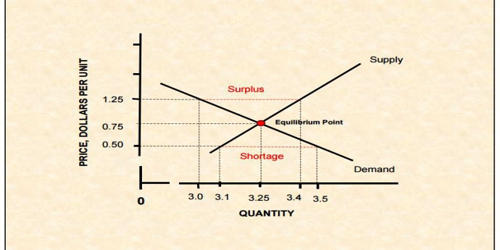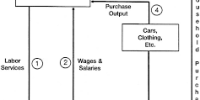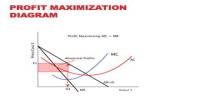The glut is an excessively abundant supply of something. It refers to a situation when more goods are available in the market than they can be sold at an economic price. In macroeconomics, a general glut is an excess of supply in relation to demand, specifically, when there is more production in all fields of production in comparison with what resources are available to consume said production. It means there is too much of something. In other words, the supply of something exceeds demand, i.e., there is an oversupply. It is a market situation where the supply of a good or service far exceeds its demand, usually resulting in a substantial fall in its price.
In economics, a glut is an oversupply, overproduction, or excess of supply over demand. The term refers to either products or services. When we glut the market with something, it means we have flooded it with something. The verb to glut can mean to satisfy the appetite. It is a market situation where the supply of a good or service far exceeds its demand, usually resulting in a substantial fall in its price. When there is an overproduction or oversupply of something, its price usually declines. This exhibits itself in a general recession or depression, with high and persistent underutilization of resources, notably unemployment and idle factories. Additionally, an oversupply of something can lead to unsold goods and even unemployment. The Great Depression is often cited as an archetypal example of a general glut.
Overproduction sometimes follows overinvestment, i.e., when a company invested too much. The problem is that, as labor becomes specialized, if people want a higher standard of living, they must produce more. The overinvestment creates excess productive capacity, which as mentioned before, leads to either lower prices or unsold goods. However, producing more lowers prices and leads to the need to produce yet more in response. The overproduction of commodities, for example, forces companies to reduce production. They reduce production because they need to clear inventories. If those who have money choose not to spend it, then it is possible for a national economy to become glutted with all of the goods it produces, and still be producing more in hopes of overcoming the deficit. If a company reduces production, it may have to lay off workers, i.e., there is a reduction in employment. If employment falls, consumption subsequently declines.
















